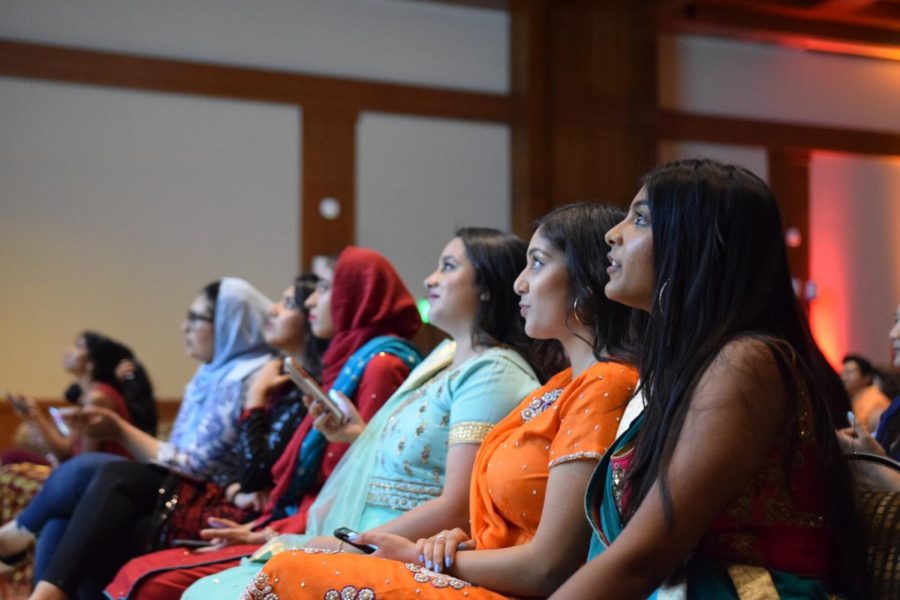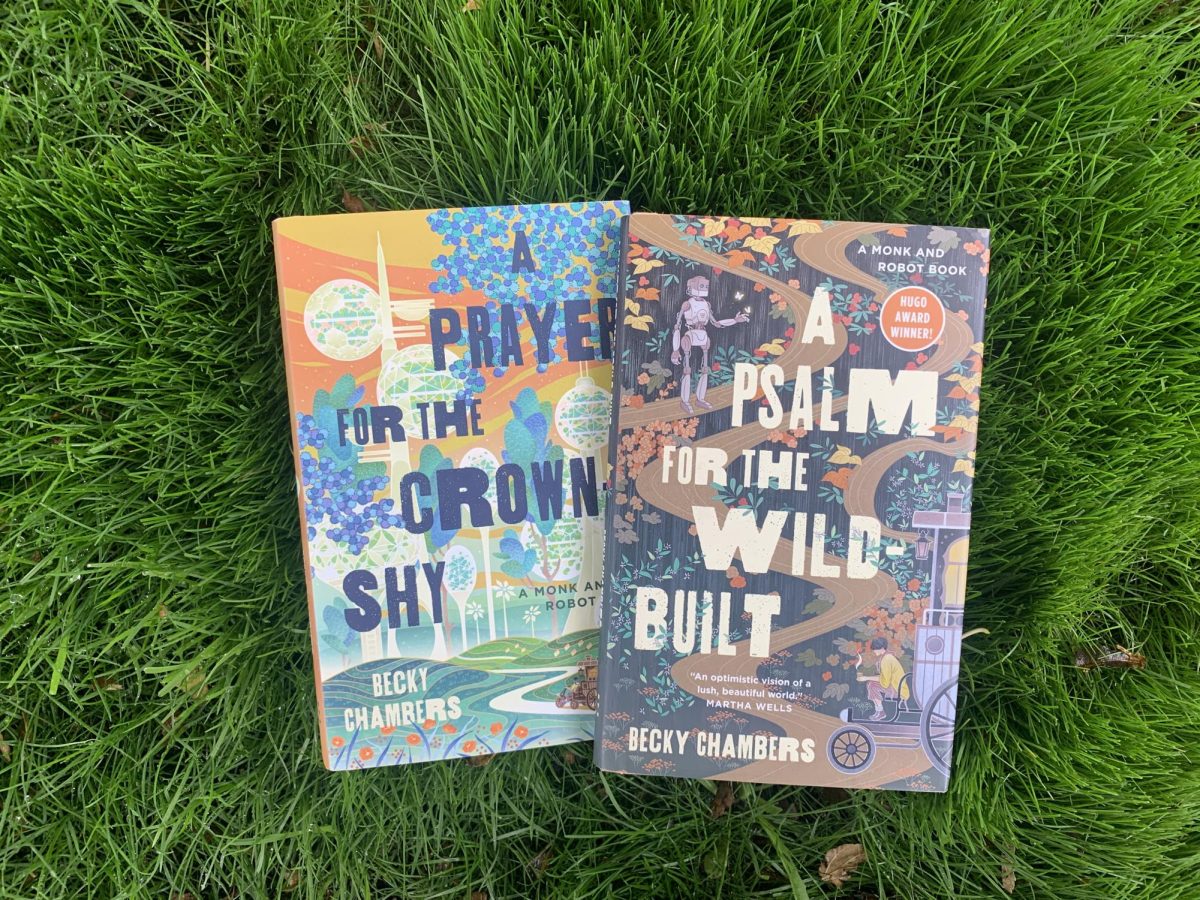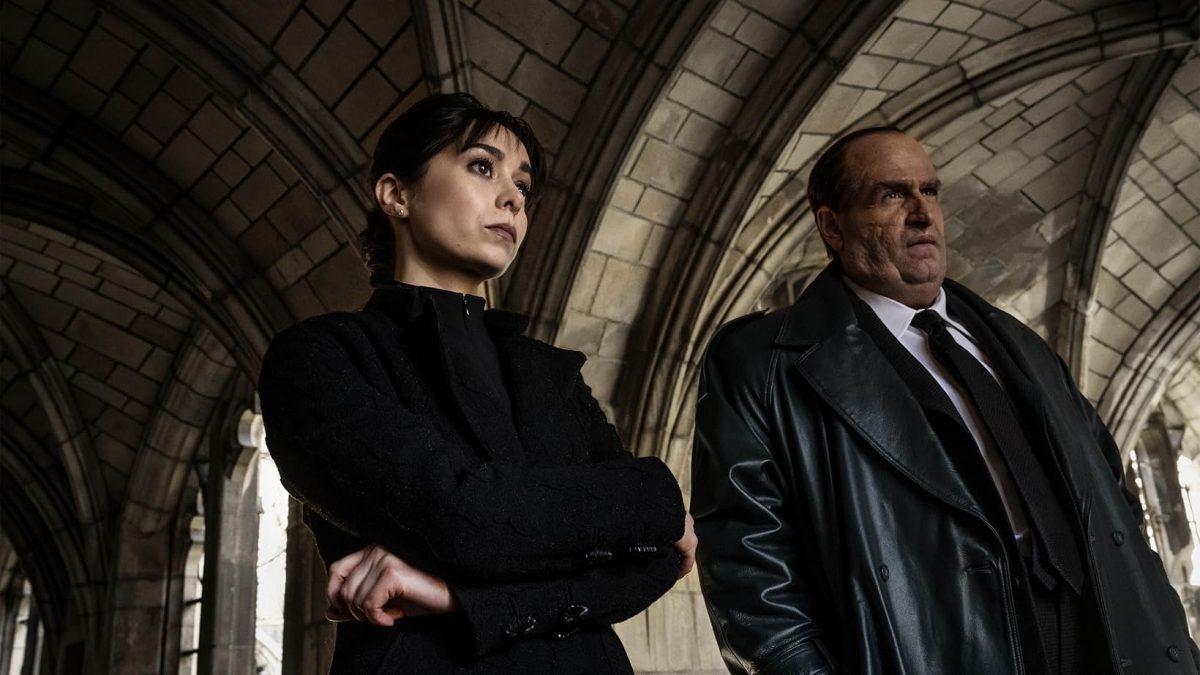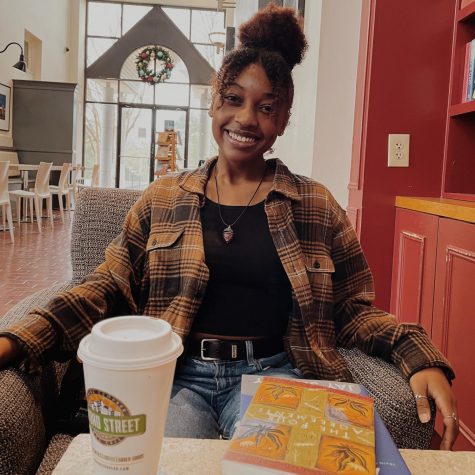A widely celebrated Hindu festival called Diwali was held at Montezuma Hall by San Diego State’s Indian organization, Sanskriti. Students gathered and bonded over food, entertainment, and a lot of dancing.
SDSU’s Diwali celebration started with interactive games such as the hula hoop pass challenge where participants held hands in a circle and passed the hoop around without breaking handholds, and Kahoot where the crowd was quizzed on their knowledge of popular Bollywood stars and movies.
Soon after the games, everyone sat and enjoyed entertainment from singers and dancers performing traditional Indian songs and dances with a dose of laughter from a stand-up comedian.
Born in the US, computer science freshman Animesh Srivastava was raised celebrating Diwali every year.
“I’ve been celebrating Diwali since my birth because it’s an Indian tradition and my parents celebrate it,” said Srivastava.
Journalism sophomore Shalika Oza believes Diwali is an opportunity to spend time with loved ones.
“For me, it’s just kind of like a festival where I get to celebrate time with my friends and family,” she said.
Diwali is a five day Hindu tradition originated in India that gives honor to the legend of King Rama’s return to Ayodhya after his defeat over Raavna. Diwali is also known as the “festival of lights” because of the traditional act of lighting clay lamps or diyas to signify the victory of light over darkness.
Diwali is India’s biggest and most important holiday of the year according to National Geographic.
Every year this celebration falls between October or November on the Western calendar with the exact day changing each year based on the Hindu calendar.
Even though Diwali is a Hindu originated tradition, it has grown into a national festival that’s enjoyed by many non-Hindi communities such as Jains, Sikhs, and Buddhists in India.
Although Diwali originated from religious purposes in India, some believe the tradition has become muddled over time.
“It’s kind of lost some of its more religious meaning in America, but it’s definitely something that people use as an excuse to get together with their friends and family,” Oza said.
In most Diwali celebrations, there are lots of lights, dancing and delicious food. Women wore a variety of colored, jeweled outfits at the festival. When the women went on stage as a group, the swirling colors mesmerized some of the audience members.
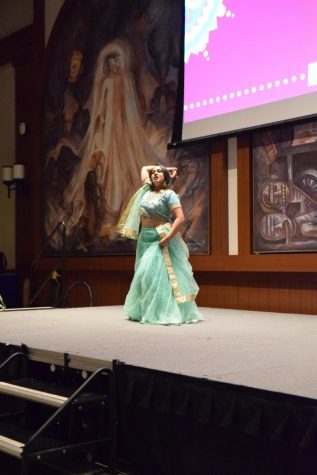
Eletrical engineering freshman Ritish Gupda said that his favorite part about this festival was the fire crackers and meeting new people.
“My favorite part about Diwali is meeting new people when I’m outside of my country and the main attraction is the fire crackers,” he said. “I was not able to see any firecrackers here, but in India it’s crazy.”
Oza’s favorite part was the food.
“We get to have food then, which is nice and I mean we get to have food all the time, but this is just extra special,” she said.
Despite the varying religious backgrounds and cultures, Diwali is a time when family and friends come together and enjoy meals, community, singing, dancing and music to celebrate the triumph of light over darkness.




